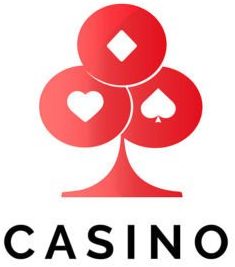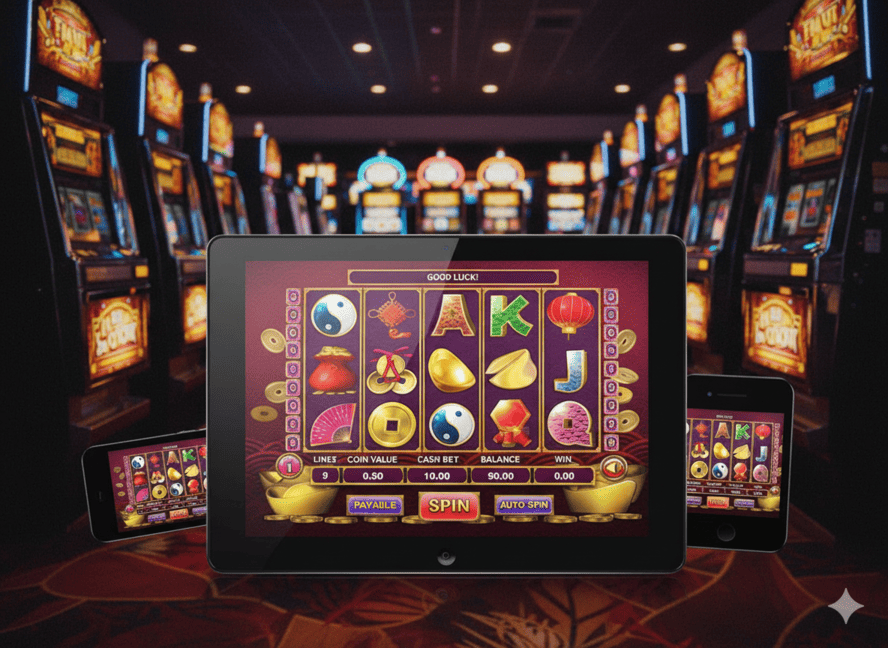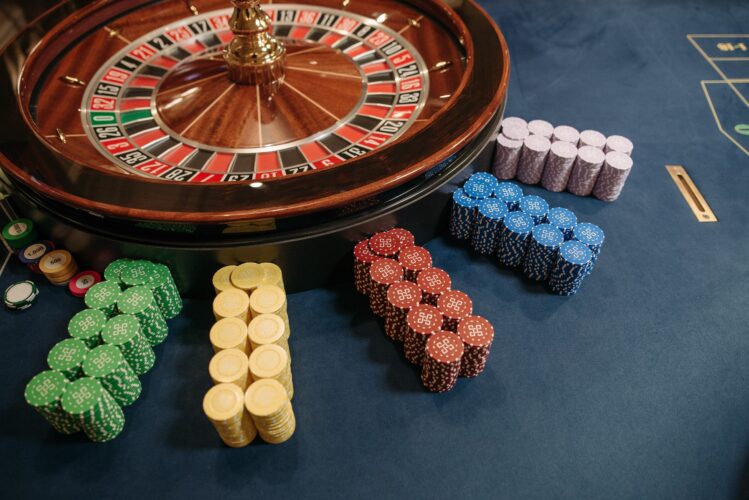There’s a peculiar and powerful moment that some gamblers at sportunabet.gr encounter – a point where playing stops being about winning money, but instead becomes something they feel compelled to continue. At this stage, the thrill isn’t about profits or even victories; it’s about the sheer act of betting itself, an unstoppable force that keeps them engaged beyond rational choice. This point of no return isn’t merely addiction – it’s a unique psychological state fueled by emotional intensity, neurological reinforcement, and deeply ingrained habits.
In this detailed exploration, we’ll dive deep into the psychology behind reaching this point of no return, understanding why gambling can become irresistible even when winning no longer matters, and how players at platforms can identify and manage this critical moment.
Understanding the Gambling Point of No Return
Defining the Point of No Return
The point of no return in gambling refers to a psychological stage where playing itself becomes the primary driver, surpassing the desire for wins or financial rewards. Players gamble out of habit, compulsion, or emotional need, no longer driven by outcomes, but by the act of gambling itself.
Why Winning Becomes Irrelevant
At this critical stage, gamblers experience emotional detachment from outcomes. Wins become secondary or irrelevant, overshadowed by the compulsive need for the act of gambling. This shift in motivation signals a deep psychological transition into compulsive behaviors.
Psychological Foundations of Compulsive Gambling
Emotional and Neurological Conditioning
Repeated gambling experiences condition emotional and neurological responses. Each bet triggers dopamine release, reinforcing pleasure, excitement, and emotional reward, conditioning players to repeat gambling behaviors regardless of winning outcomes.
Compulsive Behavior Formation
Compulsive gambling behaviors form through psychological reinforcement – anticipation, excitement, risk-taking. Over time, gambling itself becomes a deeply ingrained emotional and behavioral habit, causing players to gamble repeatedly, independent of rewards.
Emotional Dynamics Behind the Irresistible Compulsion to Gamble
Gambling as Emotional Regulation
At casino, gambling often provides emotional regulation – relief from stress, anxiety, sadness, loneliness. Over time, players increasingly rely on gambling for emotional management, reinforcing compulsive behaviors independent of gambling outcomes.
Fear of Emotional Emptiness
Stopping gambling risks emotional emptiness, boredom, or emotional withdrawal. Gamblers continue playing compulsively to avoid confronting emotional emptiness, reinforcing gambling behaviors even when winning becomes meaningless.
Neurological Reasons for Uncontrollable Gambling Behavior
Dopamine Dependency and Gambling
Gambling continuously stimulates dopamine release, providing immediate emotional gratification. Over time, neurological dependency on gambling-triggered dopamine emerges, compelling players to gamble repeatedly for emotional satisfaction, not financial gain.
Neural Pathways Reinforcing Compulsion
Repeated gambling creates strong neurological pathways reinforcing compulsive behaviors. Gambling-related actions – placing bets, spinning reels, watching outcomes – become neurologically automatic, causing irresistible compulsions to gamble, independent of outcomes.
Social and Environmental Influences on Compulsive Gambling
Social Validation and Gambling Community Influence
Social interactions – gambling forums, casino communities, peer groups – significantly reinforce compulsive gambling behaviors. Observing peers frequently gambling validates compulsive behaviors, socially reinforcing continued gambling despite emotional or financial consequences.
Casino Design and Behavioral Reinforcement
Online casinos intentionally design environments to reinforce continuous gambling behaviors. User-friendly interfaces, instant-play features, attractive bonuses, and continuous gameplay mechanics encourage prolonged gambling sessions, reinforcing compulsive behavior at platforms.
Recognizing the Symptoms of the Gambling Point of No Return
Loss of Interest in Gambling Outcomes
Players reaching the point of no return experience emotional detachment from wins or losses. They gamble compulsively, driven purely by gambling actions, experiencing diminished emotional responses to gambling outcomes.
Persistent Inability to Stop Gambling
Persistent unsuccessful attempts to stop gambling clearly signal reaching the critical compulsive stage. Despite emotional awareness of consequences, players repeatedly return compulsively to gambling behaviors, indicating severe emotional and neurological compulsions.
Risks and Consequences of Compulsive Gambling
Emotional and Psychological Consequences
Compulsive gambling significantly impacts emotional and psychological health. Emotional distress, anxiety, depression, emotional emptiness, and social isolation frequently accompany uncontrollable gambling behaviors, severely affecting overall emotional well-being.
Financial and Relationship Consequences
Severe financial consequences – debt, financial instability, bankruptcy – commonly result from compulsive gambling behaviors. Relationship strain, emotional conflict, isolation, and communication breakdowns frequently accompany prolonged compulsive gambling, severely impacting personal relationships.
Strategies for Managing the Gambling Point of No Return
Developing Emotional Awareness and Reflection
Regular emotional self-assessment helps recognize compulsive gambling behaviors. Consciously evaluating emotional motivations, compulsive tendencies, and gambling behaviors allows proactive emotional management, reducing risks associated with compulsive gambling.
Establishing Clear Gambling Boundaries
Actively establishing clear gambling boundaries – session durations, financial limits, emotional triggers – significantly reduces risks associated with compulsive gambling. Responsible gambling tools at platforms actively support maintaining emotional control and responsible gambling practices.
Mindfulness and Cognitive Behavioral Techniques
Practicing Mindful Gambling Behaviors
Practicing mindful gambling – conscious emotional awareness, reflective gambling decisions, emotional management techniques – significantly reduces compulsive gambling behaviors. Mindful gambling practices enhance emotional stability, self-control, and responsible gambling enjoyment.
Cognitive Behavioral Approaches to Gambling
Cognitive behavioral techniques effectively address compulsive gambling behaviors. Challenging gambling compulsions, reframing emotional responses, developing healthier coping strategies significantly reduce emotional and neurological compulsions, enhancing overall gambling management.
How Casino Supports Responsible Gambling
Comprehensive Responsible Gambling Resources
Casino actively promotes responsible gambling, providing extensive emotional management resources, compulsive gambling behavior awareness, emotional wellness strategies, and responsible gambling practices. Educating players significantly empowers responsible gambling behaviors.
Robust Emotional and Financial Management Tools
Providing responsible gambling tools – deposit limits, loss thresholds, self-exclusion options – casino actively supports emotional balance, financial responsibility, and controlled gambling behaviors, reducing risks associated with compulsive gambling.
Real-Life Experiences: Overcoming Compulsive Gambling Behaviors
Elena’s Emotional Self-Awareness Journey
Elena reached the compulsive gambling stage at casino, experiencing emotional detachment from gambling outcomes. Conscious emotional self-awareness, reflective gambling practices, and responsible gambling boundaries significantly reduced compulsive behaviors, improving emotional stability.
Victor’s Mindfulness and Boundary Setting
Victor repeatedly experienced compulsive gambling behaviors, unable to stop despite emotional awareness. Mindfulness meditation, cognitive behavioral strategies, and proactive boundary-setting significantly reduced compulsive gambling tendencies, enhancing emotional control and gambling management.
Recognizing When Professional Help is Needed
Identifying Severe Compulsive Gambling Symptoms
Severe compulsive gambling symptoms – persistent inability to stop gambling, emotional distress, financial irresponsibility, relationship deterioration – indicate a need for professional emotional and gambling support. Prompt recognition ensures emotional recovery, responsible gambling practices, and emotional wellness.
Utilizing Emotional and Gambling Support Networks
Casino actively encourages gamblers experiencing severe compulsive behaviors to promptly utilize emotional counseling, gambling support networks, responsible gambling resources, and professional assistance, ensuring emotional health, gambling recovery, and emotional resilience.
Conclusion: Maintaining Emotional Control and Responsible Gambling Practices
Understanding the gambling point of no return significantly empowers emotional self-awareness, responsible gambling behaviors, and emotional management. Recognizing emotional risks associated with compulsive gambling allows players to proactively manage gambling behaviors, maintain emotional stability, and enjoy gambling responsibly.
Platforms actively support responsible gambling, emotional wellness, compulsive gambling awareness, emotional management tools, and comprehensive educational resources. Players proactively engaging in emotional self-awareness, mindful gambling practices, responsible gambling boundaries, and professional emotional support significantly reduce compulsive gambling risks, enhancing gambling enjoyment, emotional health, and overall life satisfaction.
Ultimately, responsible gambling involves conscious emotional management, proactive self-awareness, responsible gambling practices, and diversified emotional fulfillment. Ensuring emotional control, resilience, and responsible gambling behaviors guarantees gambling remains enjoyable, emotionally rewarding, financially responsible, and emotionally enriching, preventing risks associated with compulsive gambling behaviors.



